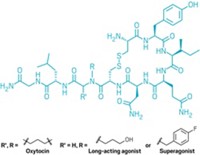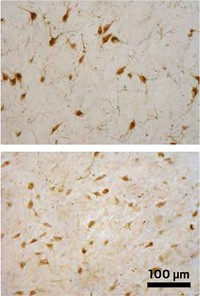Advertisement
Grab your lab coat. Let's get started
Welcome!
Welcome!
Create an account below to get 6 C&EN articles per month, receive newsletters and more - all free.
It seems this is your first time logging in online. Please enter the following information to continue.
As an ACS member you automatically get access to this site. All we need is few more details to create your reading experience.
Not you? Sign in with a different account.
Not you? Sign in with a different account.
ERROR 1
ERROR 1
ERROR 2
ERROR 2
ERROR 2
ERROR 2
ERROR 2
Password and Confirm password must match.
If you have an ACS member number, please enter it here so we can link this account to your membership. (optional)
ERROR 2
ACS values your privacy. By submitting your information, you are gaining access to C&EN and subscribing to our weekly newsletter. We use the information you provide to make your reading experience better, and we will never sell your data to third party members.
Environment
Hormone Enhances Alcohol's Allure
Ghrelin not only increases appetite for food, it also stimulates the desire to have a drink
by Sophie L. Rovner
July 6, 2009
| A version of this story appeared in
Volume 87, Issue 27
Ghrelin, the hormone known for eliciting hunger, also has a dark side: It increases the desire for alcohol, at least in mice, according to a newly published study (Proc. Natl. Acad. Sci. USA, DOI: 10.1073/pnas.0812809106). Elisabet Jerlhag of the University of Göteborg, in Sweden, and colleagues report that mice dosed with ghrelin drank more alcohol than normal. And when the team administered a compound that blocks the ghrelin receptor, the mice drank less alcohol than normal. Ghrelin signaling stimulates the brain’s reward system and is required for alcohol’s euphoric effects to occur, the researchers note. In addition, they cite prior research showing that alcohol craving in alcohol-dependent people is associated with elevated ghrelin levels and that ghrelin levels rise during alcohol withdrawal. The researchers propose that compounds with the ability to block the ghrelin receptor could have potential for treating alcohol abuse.





Join the conversation
Contact the reporter
Submit a Letter to the Editor for publication
Engage with us on Twitter